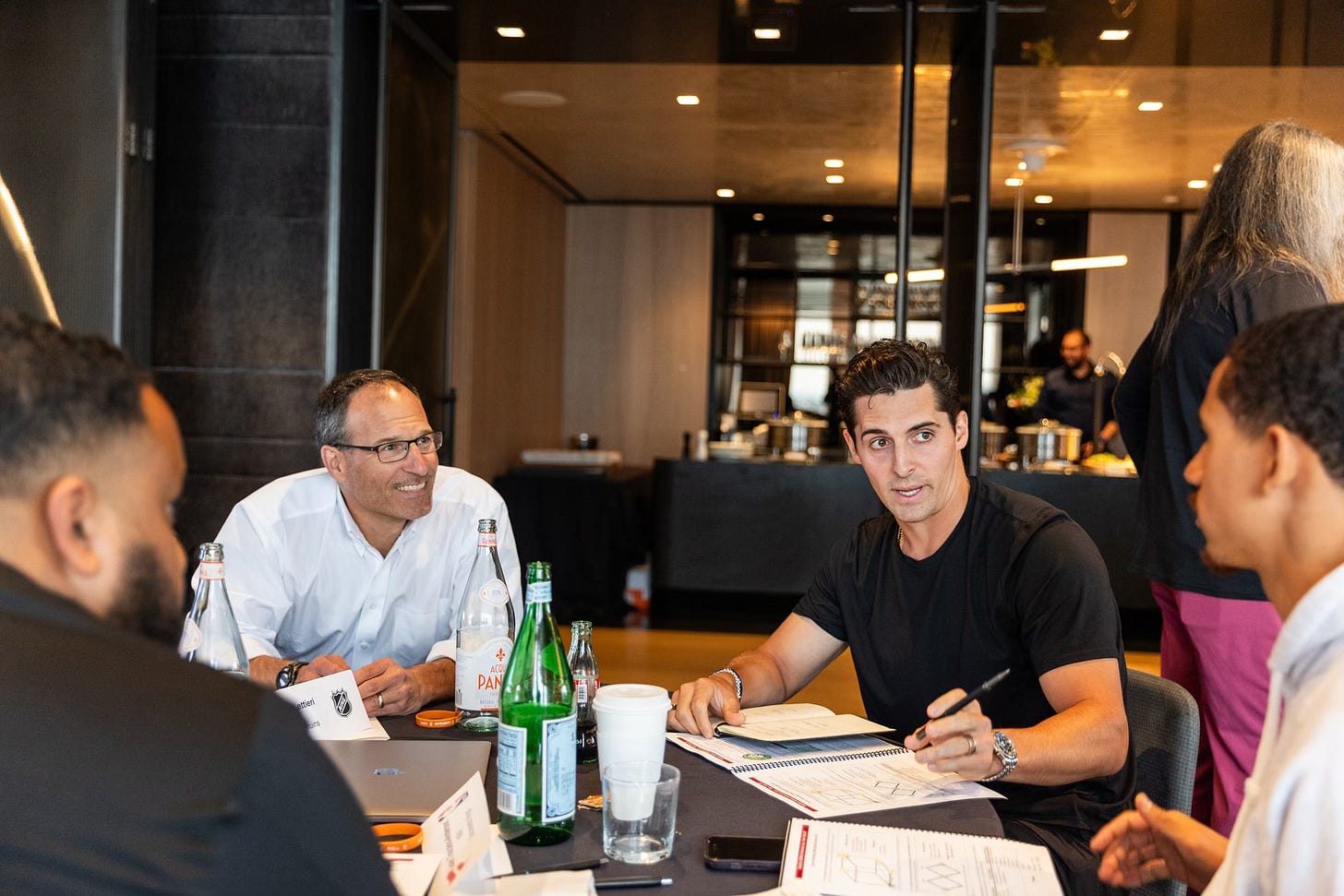Fanatics immersion program working to help NHLers plan for life after hockey
I spoke with Vinnie Lettieri this week about his experience working with the company last month.
Vinnie Lettieri was at the NHLPA meetings in Las Vegas when he first heard about the Fanatics Immersion program.
“(Fanatics CEO) Michael Rubin came and talked to us and he told us about this program, how they were going to start integrating the NHL,” Lettieri said. “It was amazing to me that this program wasn’t completely full and there wasn’t a line out the door trying to get in.”
The program is effectively a week-long crash course in business put on by Fanatics. Current athletes spend time with multiple parts of the apparel and memorabilia company, while also having meetings and introductions to executives from other businesses.
A typical day for the players in the program included seminars starting at 10 am, allowing for morning workouts, and then ongoing meetings until roughly 4 pm. After that each night included two-hour dinner blocks with business owners and executives from both the sports and non-sporting world.
“It’s a lot, you take in kind of everything and try to learn, and at night you just try to soak it all in before you go to sleep,” Lettieri said.
Fanatics launched it as a pilot program roughly seven years ago, working with a handful of NFL players, and has since expanded to include athletes from the NBA, MLB, NHL, and WNBA.
This year the group of NHL players included Jacob Trouba, Kyle Okposo, Will Cuylle, and A.J. Greer, in addition to Lettieri. Because of a natural cross-over in schedule, the NHL players went through the program at the same time as NBA players.
According to Orlando Ashford, the chief people officer at Fanatics, the program started attracting athletes who were interested in prepping themselves for lives after their playing careers were over, but has started to shift more to players looking to build their off-ice (or field) impact while playing.
For example, Isaiah Todd, a 22-year-old forward who has played in the NBA with the Washington Wizards, is one of the youngest athletes to take part in the program.
“There’s a lot of guys near the end of their career or maybe in their middle of the career, and then there is Isiah who is sitting with this gold mine in front of him as a 22-year-old before his career even really takes off,” Lettieri said. “I think you kind of have to be a sponge and try to learn something every single day, and this is the type of stuff that, as athletes, I think you don’t spend enough time trying to learn about until your behind everyone when you are done playing.”
Lettieri, who is 29 and was traded to the Boston Bruins this season, said one of the biggest things he took away from the meetings, particularly with some of the executives, was how much failure isn’t the end of the line in business.
“Every single CEO or executive you talked with, and we had chances to sit down with them over long dinners, talked about how much they failed in business before,” Lettieri said. “I think as an athlete, if you fail or lose, it’s not the end of the world. But the thought of failing in business or the real world, that’s scarier. And it’s kind of a good look and reminder that just trying and learning from that, it can be a success even if it feels like a failure at the time.”
From an NHL perspective, Fanatics is hoping this program can be an extension of its relationship with NHL players. When the company took over the NHL on-ice jersey deal, it pushed hard to meet with players from all 32 teams to review the product and wanted to get the green light from the athletes who will actually use the product.
Fanatics is also hoping to expand the NHL involvement in the immersion program in the future, while also looking into long-term plans of offering longer programs — like formal internships or co-ops — with retired players.
“We don’t have a company without the athletes,” Ashford said. “I think it’s important we remember that and we want to make sure we are doing what we can for our partners and athletes, because they are the reason anyone cares about what we have as a business.”


